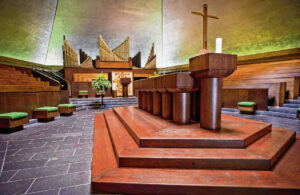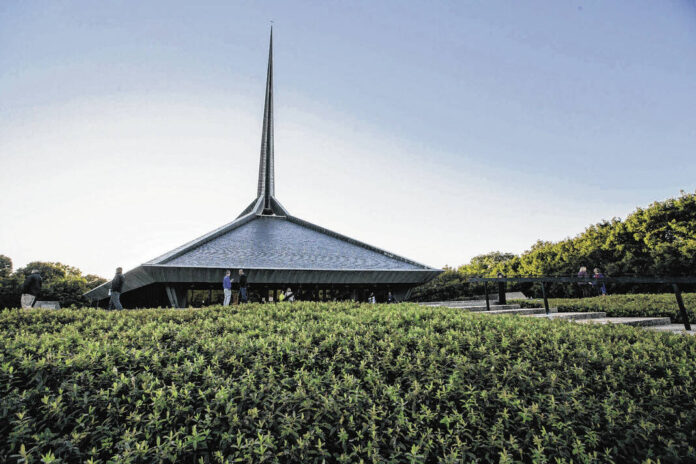Even amid the death of North Christian Church’s role as a worship center, its passionate people and friends will celebrate life. Notices about today’s 11 a.m. final service for the Disciples of Christ body of believers at 850 Tipton Lane even have referenced such an upbeat perspective.
And a closing note in the bulletin to be distributed at the fond farewell mentions the importance of carrying “the hope of the resurrection” into the future.
“It’s bittersweet,” said the Rev. Lanny Lawler, the church’s pastor from 2004 to 2015 and one of today’s scheduled speakers for the expected 90-minute service. “You have memories of a lot of good times, and memories of the overall legacy that the church has contributed. And that legacy continues.
“But it’s always sad when a congregation closes its visible ministry.”
Nance Aurand-Humpf, chair of the church’s board, acknowledged that emotions have been rather raw. She joined the 67-year-old church in 2002 when weekly worship attendance remained a fairly stable 115 people per Sunday.
“I think that we’ve all been grieving since February,” she said, referring to the time of the decision to disband after the congregation shrunk to fewer than 30 people. “But I think that we now have found our way to acceptance.”
Yet, she figures there clearly will be tears amid the gathering. The church’s past, and even its very formation, hearkens to a day when community leaders J. Irwin and Xenia Miller were among not only this city’s more visible champions of racial harmony and equality, but also representatives of that and more nationwide. The Millers figured prominently into the church’s social justice footprint, according to the church’s history and past leaders such as Lawler.
The former pastor mentioned that the prominent couple’s groundwork, along with the efforts of many others, helped pave the way years later in 2014 for North Christian to officially become what is known as an “open and affirming congregation” — welcoming people from the LGBTQ population into all elements of membership and leadership. In fact, Lawler considers that move to be perhaps the highlight of his ministry at the church.
That came to complete fruition when Pastor Tonja Gerardy, a member of the LGBTQ population, was named North Christian’s minister several years ago.
Just as the towering 192-foot-high spire of the Eero Saarinen-designed, celebrated structure reaches optimistically and symbolically skyward, so its worshippers have aimed in their history to reach upward toward equality and inclusiveness for all. And they began such in 1955 on the cusp of the civil rights movement and at the dawn of more women moving into the workplace and even into leadership roles there and soon in communities nationwide.
“The church has consistently been led by pastors who defined their mission as serving both their congregation and their larger communities, and who carried out ambitious social justice goals through advocacy, cross-sector collaborations, and interfaith partnerships,” wrote New York City architect Bryony Roberts in a church history report compiled for the prestigious Getty Foundation Grant application in 2019.
The church’s own history records show that the 43 members who left First Christian Church downtown to form North Christian in October 1955 did so to be more inclusive of women and minorities, to be strongly ecumenical toward other believers and to actively promote more diversity. Plus, they also wanted the new church to be less “socially restrictive,” as leaders put it, since First Christian leadership at the time strongly advised against activities such as card playing and dancing.
Yet, in a push for peace, positivity and grace, North Christian members carefully and publicly stated that the growing and developing north side of Columbus needed a church to serve the people. That seemed true enough at the time as other denominations began planting churches there.
The 1964 building itself, on the National Register of Historic Places, is currently being considered for the possibility of programming space for the Bartholomew County Public Library. But library leaders have said that decision possibly could be more than a year away.
Former members say they face uncertainty, too. Their basic question: where to worship now?
Joy Kraft Lawler, a North Christian elder and an ordained minister herself, finds herself wrestling with that question.
“I don’t know where I will go to church next,” she said. “But I feel strongly called to be a Disciple (of Christ).”
When architect Saarinen was asked in spring 1964 how long a just-built church should last, he told the North Christian elders it should be “for generations,” according to a story in The Evening Republican.






